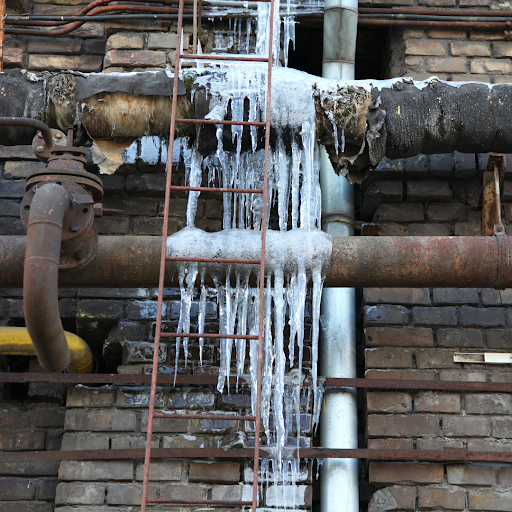How do you feel about Winter Plumbing Precautions: Preventing Frozen Pipes?

Cold weather can wreak havoc on your plumbing, particularly by freezing pipes. Here's how to prevent it from occurring and what to do if it does.
Introduction
As temperatures decline, the threat of icy pipelines rises, possibly bring about pricey fixings and water damages. Comprehending exactly how to prevent icy pipelines is important for home owners in cold environments.
Avoidance Tips
Insulating prone pipes
Cover pipelines in insulation sleeves or make use of heat tape to secure them from freezing temperatures. Focus on pipelines in unheated or outside areas of the home.
Home heating methods
Keep interior rooms properly heated, especially locations with pipes. Open up cupboard doors to allow warm air to circulate around pipes under sinks.
Just how to determine icy pipes
Seek decreased water circulation from taps, unusual smells or sounds from pipes, and visible frost on revealed pipes.
Long-Term Solutions
Structural adjustments
Consider rerouting pipes away from outside walls or unheated areas. Add added insulation to attics, cellars, and crawl spaces.
Updating insulation
Invest in top quality insulation for pipes, attics, and wall surfaces. Correct insulation assists keep consistent temperature levels and minimizes the danger of frozen pipelines.
Protecting Outside Pipes
Garden tubes and exterior taps
Detach and drain garden tubes before wintertime. Set up frost-proof faucets or cover outdoor faucets with protected caps.
Recognizing Icy Pipes
What causes pipes to freeze?
Pipelines freeze when exposed to temperature levels below 32 ° F (0 ° C) for expanded durations. As water inside the pipes freezes, it broadens, taxing the pipe walls and potentially triggering them to break.
Threats and damages
Icy pipelines can cause water system interruptions, residential property damages, and pricey repair services. Ruptured pipelines can flood homes and trigger comprehensive structural damages.
Signs of Frozen Piping
Identifying icy pipelines early can stop them from breaking.
What to Do If Your Pipes Freeze
Immediate actions to take
If you think frozen pipes, keep taps open up to soothe pressure as the ice thaws. Make use of a hairdryer or towels soaked in hot water to thaw pipes gradually.
Verdict
Avoiding icy pipes requires proactive measures and quick feedbacks. By recognizing the reasons, indicators, and safety nets, homeowners can secure their pipes during winter.
Helpful Tips to Prevent Frozen Pipes this Winter
UNDERSTANDING THE BASICS: WHY PIPES FREEZE AND WHY IT’S A PROBLEM
Water freezing inside pipes is common during the winter months, but understanding why pipes freeze, and the potential problems it can cause is crucial in preventing such incidents. This section will delve into the basics of why pipes freeze and the associated problems that may arise.
THE SCIENCE BEHIND FROZEN PIPES
When water reaches freezing temperatures, it undergoes a physical transformation and solidifies into ice. This expansion of water as it freezes is the primary reason pipes can burst. As the water inside the pipe freezes, it expands, creating immense pressure on the walls. If the pressure becomes too great, the pipe can crack or rupture, leading to leaks and water damage.
FACTORS THAT CONTRIBUTE TO PIPE FREEZING
Low Temperatures: Extremely cold weather, especially below freezing, increases the risk of pipes freezing. Uninsulated or Poorly Insulated Pipes: Pipes located in unheated areas, such as basements, crawl spaces, or attics, are more prone to freezing. Insufficient insulation or lack of insulation altogether exacerbates the problem. Exterior Wall Exposure: Pipes running along exterior walls are susceptible to freezing as they encounter colder temperatures outside. Lack of Heating or Temperature Regulation: Inadequate heating or inconsistent temperature control in your home can contribute to frozen pipes. PROBLEMS CAUSED BY FROZEN PIPES
- Pipe Bursting: As mentioned earlier, the expansion of water as it freezes can cause pipes to burst, resulting in significant water damage.
- Water Damage: When pipes burst, it can lead to flooding and water damage to your property, including walls, ceilings, flooring, and personal belongings.
- Structural Damage: Prolonged exposure to water from burst pipes can compromise the structural integrity of your home, leading to costly repairs.
- Mold and Mildew Growth: Excess moisture from water damage can create a favorable environment for mold and mildew growth, posing health risks to occupants.
- Disrupted Water Supply: Frozen pipes can also result in a complete or partial loss of water supply until the issue is resolved.
WHY CERTAIN PIPES ARE MORE PRONE TO FREEZING
- Location: Pipes located in unheated or poorly insulated areas, such as basements, crawl spaces, attics, or exterior walls, are at higher risk of freezing.
- Exterior Pipes: Outdoor pipes, such as those used for irrigation or exposed plumbing, are particularly vulnerable to freezing as they are directly exposed to the elements.
- Supply Lines: Pipes that carry water from the main water supply into your home, including the main water line, are critical to protect as freezing in these lines can affect your entire plumbing system.
- Underground Pipes: Pipes buried underground, such as those connected to sprinkler systems or outdoor faucets, can be susceptible to freezing if not properly insulated.
https://busybusy.com/blog/helpful-tips-to-prevent-frozen-pipes-this-winter/

We hope you enjoyed our section on How to prepare your home plumbing for winter weather. Thanks for spending some time to browse our article post. Enjoyed reading our blog posting? Please quickly share it. Let others locate it. I am grateful for your time. Kindly check up our site back soon.
Book A Service